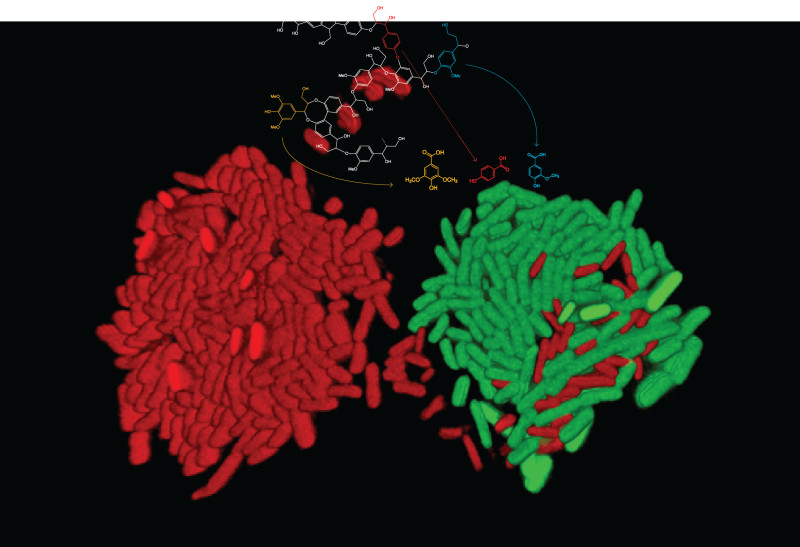
Source: UBC Science
genomics.entrepreneurship @UBC’s research partner project Lignin: Harnessing Microbial Diversity for Sustainable Use of Forest Biomass Resources announces the invention of a new biosensor that could help optimize bio-refining processes that produce fuels, fine chemicals and advanced materials. It works by sniffing out naturally occurring bacterial networks that are genetically wired to break down wood polymer. Developed by Dr. Steven Hallam and his team, the biosensor screens DNA from environmental samples to isolate the lignin-busting genetic machinery encoded in the samples’ resident microbes. The improved understanding of adaptive, eco-engineered lignin transformation could also lead to applicable industrial processes. The sensor, screening and adaptive genetic circuitry discovered with them have been licensed through the University Industry Liaison Office. A spin-off company, guided by the genomics.entrepreneurship@UBC program, is looking into ways to increase the scale of production of this technology. From UBC Science, read more: UBC News Release.
“We’ve found that bacteria harness adaptive genetic circuits to break down lignin and that these circuits can be mobilized in nature via horizontal gene transfer,” says Hallam. “Our biosensor and screening enables us to uncover this genetic network, and then further optimize it in the laboratory.”
“We need to remain sensitive to the complexity of natural processes that act on lignin, but this project has unearthed some basic organizing principles that will also enable us to exploit microbial processes more quickly for any number of engineering applications,” says UBC researcher Cameron Strachan.
“This is a very significant breakthrough that provides important new insights into how nature breaks down lignin,” says Dr. Lindsay Eltis, co-author on the PNAS paper. “This work should also facilitate the development of innovative biomass-transforming processes to unlock the potential of lignin.”
Background
The findings validating the screening were published in the Proceedings of the National Academy of Sciences. The work was funded by Genome Canada, Genome BC and the Tula Foundation. Lignin, a promising and abundant feedstock, comprises up to 40 per cent of plant biomass. However lignin has so far resisted efficient decomposition into fuels, fine chemicals and advanced materials.
Most bio-refining agents are based on enzymes engineered from fungi. In this case, UBC researchers used the innovative screening approach to source and test genetic arrays from bacteria inhabiting coal beds. The biosensor reacts to a set of small molecules that are the residue of lignin’s natural degradation process. The researchers surmised that coal — ancient wood and plant biomass deposited before the evolution of fungal lignin degradation pathways — might contain bacterial pathways involved in the transformation process. Source: UBC Science Press Release
Publications
Cameron R. Strachan, Rahul Singh, David VanInsberghe, Kateryna Ievdokymenko, Karen Budwill, William W. Mohn, Lindsay D. Eltis, and Steven J. Hallam (2014) Metagenomic Scaffolds Enable Combinatorial Lignin Transformation. Published in Proceedings of the National Academy of Sciences 111 (28) 10143-10148
Resources
UBC Science Press Release – June 30 2014
Science Daily – June 30 2014
Phys.org – June 30 2014
g.e@UBC’s Interview with Cameron Strachan
We interviewed Cameron Strachan, co-founder and CEO of MetaMixis. He shared with us his story of how he was able to apply his experiences at the genomics.entrepreneurship’s entrepreneur accelerator, the Lean Launch Pad, in his work outside the lab. Read Cameron’s interview here.
g.e@UBC’s Interview with Steven Hallam
We asked Steven Hallam a few questions about his journey ‘outside the lab’. Steven participated in g.e@ubc’s second Lean Launch Pad (LLP) in Genomics sessions with Cameron Strachan, co-founder and CEO of MetaMixis. Steven and Cameron are excellent examples of successful researchers addressing the commercial challenges of transferring their research from the ‘lab’ to the ‘field’, and thus benefitting Canada’s social and economic development. Read More

